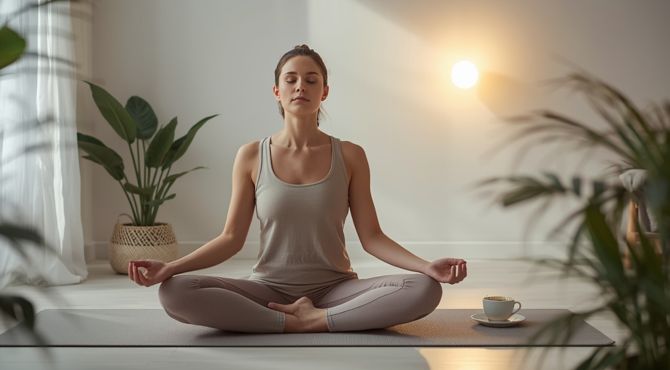7 Powerful Mindfulness Techniques for a Calmer Mind
7 Powerful Mindfulness Techniques for a Calmer Mind
Meta Description:
Discover 7 powerful mindfulness techniques for a calmer mind. Reduce stress, increase focus, and restore inner peace naturally every day.
Introduction
Do you ever feel like your mind is running faster than you can keep up? Thoughts racing, stress building, focus slipping? You’re not alone. In our always-on world, mental overwhelm has become the norm.
The good news: mindfulness techniques for a calmer mind are simple, science-backed practices that help you slow down, regain control, and feel more grounded. In this article, you’ll learn seven easy techniques you can use today to reduce stress and boost clarity.
Why Mindfulness Matters for a Calmer Mind
Mindfulness means paying full attention to the present moment without judgment. It’s proven to:
- Lower stress hormones (like cortisol)
- Improve concentration and memory
- Increase emotional resilience
- Promote better sleep and overall well-being
By practicing mindfulness daily, you create mental space and clarity even during busy schedules.
7 Mindfulness Techniques for a Calmer Mind
1. Focused Breathing
- Sit comfortably and close your eyes.
- Inhale deeply for 4 counts, hold for 2, exhale for 6 counts.
- Repeat for 2–5 minutes.
Why it works: Slow, intentional breathing activates the body’s relaxation response.
2. Body Scan Meditation
- Lie down or sit comfortably.
- Gently move your attention from the top of your head to your toes, noticing sensations without judgment.
- Release tension in each area as you go.
Tip: Great for winding down before sleep.
3. Mindful Walking
- Walk slowly, paying attention to each step.
- Notice how your feet feel as they touch the ground.
- Tune into your surroundings—sounds, smells, sights.
This technique combines gentle movement with awareness, reducing stress naturally.
4. Gratitude Journaling
- Each morning or evening, write down three things you’re grateful for.
- Focus on small details—sunlight, a kind word, your morning coffee.
Benefit: Shifts your mindset from stress to appreciation.
5. Single-Tasking
- Choose one task and give it your full attention.
- Silence notifications and set a timer if needed.
Why it works: Multitasking increases stress; single-tasking builds calm focus.
6. Mindful Eating
| Step | Action |
|---|---|
| Prepare | Serve your meal without distractions |
| Observe | Notice the colors, textures, and aromas |
| Savor | Chew slowly and taste each bite fully |
This slows you down, aids digestion, and reduces mindless stress eating.
7. Loving-Kindness Meditation
- Sit quietly and repeat phrases like: “May I be happy. May I be calm. May others be happy. May others be calm.”
- Visualize yourself and others surrounded by compassion.
This builds empathy and softens stress-driven emotions.
Tips to Make Mindfulness a Habit
- Start with just 5 minutes a day.
- Attach mindfulness to an existing habit (like your morning coffee).
- Use a guided meditation app to stay consistent.
Key Takeaways
- Mindfulness is a simple yet powerful way to reduce stress and create mental clarity.
- Techniques like focused breathing, journaling, and mindful walking can be practiced anywhere.
- Consistency matters more than duration.
Conclusion
Your mind deserves as much care as your body. By practicing these 7 mindfulness techniques for a calmer mind, you’ll reduce stress, sharpen focus, and cultivate inner peace — no matter how hectic life gets.
💡 Which mindfulness technique will you try first? Share your experience in the comments below!
FAQ – Mindfulness Techniques for a Calmer Mind
1. How long should I practice mindfulness each day?
Even 5–10 minutes of daily mindfulness can noticeably calm your mind.
2. Do I need special equipment for mindfulness techniques?
No. Most techniques require nothing more than a quiet space and your attention.
3. Can mindfulness help with anxiety or insomnia?
Yes. Research shows mindfulness reduces anxiety and improves sleep quality over time.
4. What’s the easiest mindfulness technique for beginners?
Focused breathing or mindful walking are simple starting points.
5. How soon will I notice results from mindfulness practices?
Some people feel calmer after one session; lasting benefits build within a few weeks of consistent practice.



